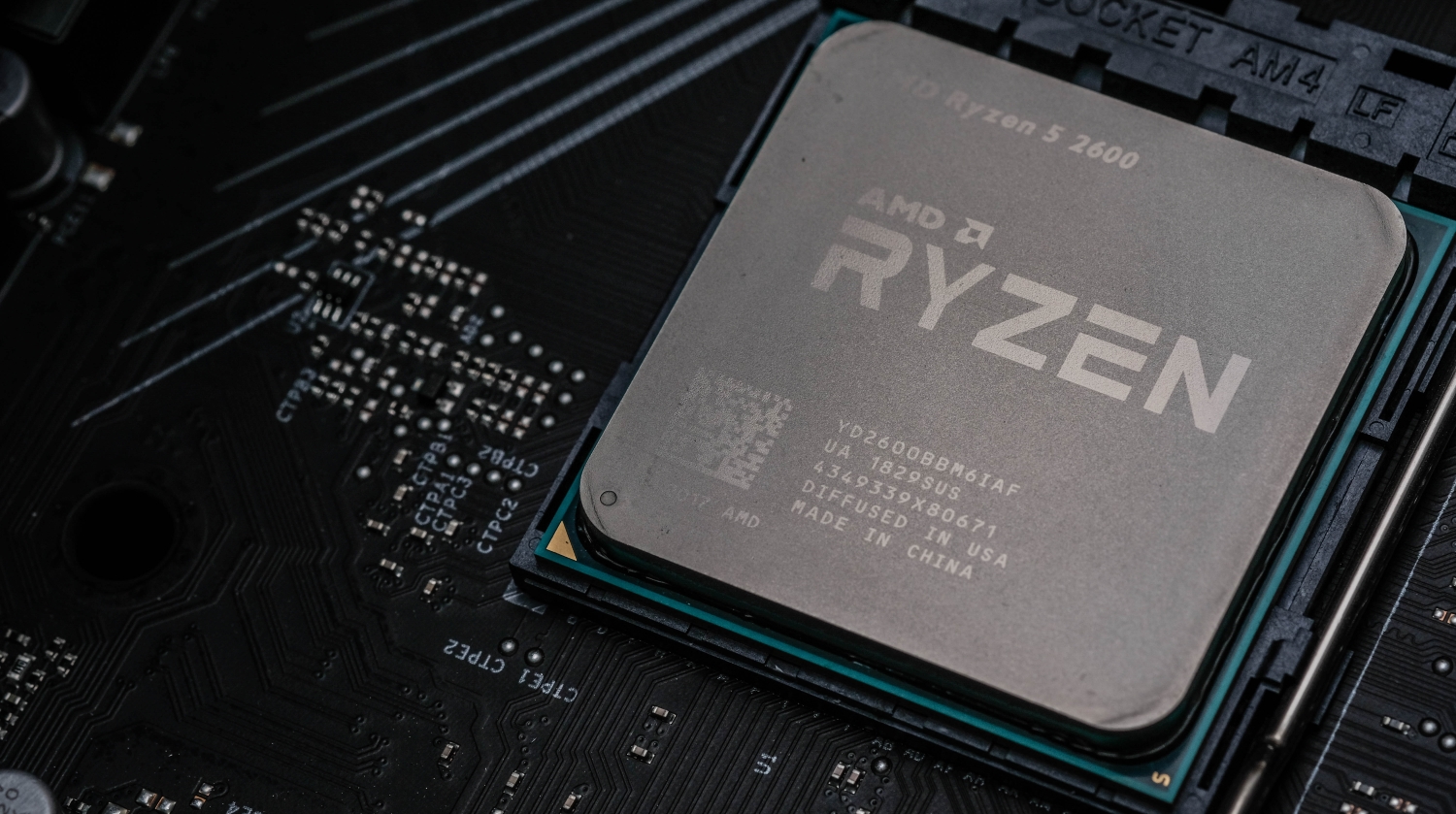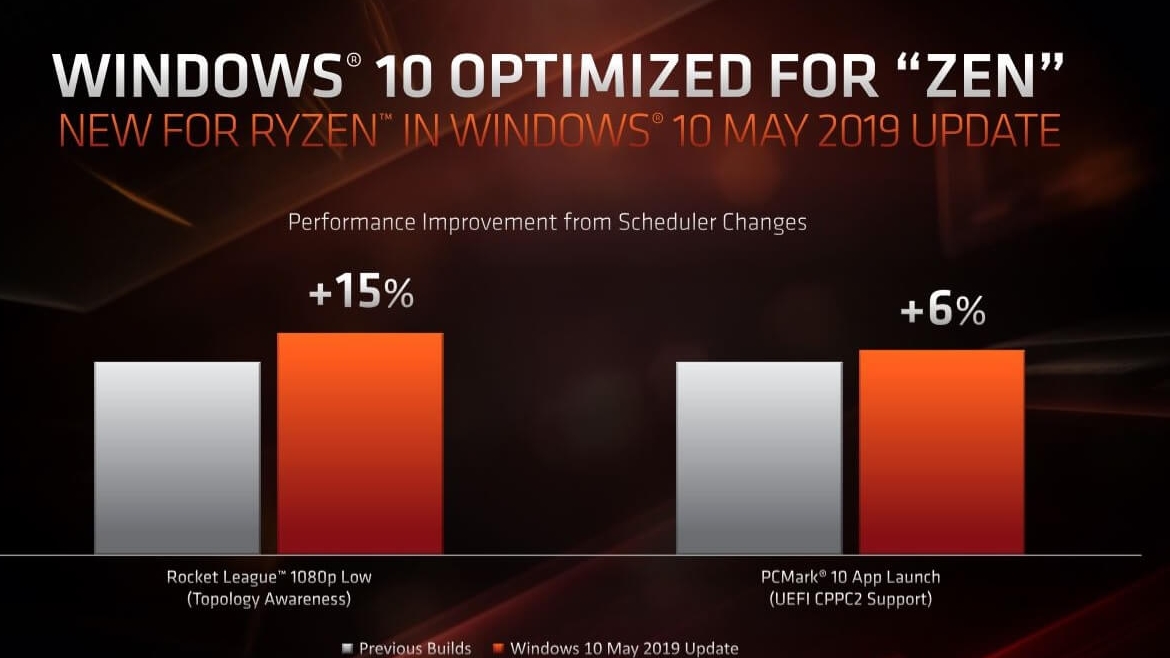Windows 10 May 2019 Update brings AMD performance boost
AMD-powered PCs get an upgrade

The Windows 10 May 2019 Update has brought some great new features to Windows 10, but perhaps the best change is one that didn’t get much fanfare – as AMD-powered PCs will now perform better with the update installed.
This is because Windows 10 version 1903 – also known as the May 2019 Update – changes how the Windows scheduler tool works with AMD hardware. Previously, the Windows scheduler was causing issues that impacted the performance of AMD Ryzen processors.
- Best processors 2019: the best CPUs for your PC
- Windows 10 May 2019 Update problems: how to fix them
- AMD vs Intel: which chipmaker does processors better?
The improvements come from Microsoft and AMD working together to improve Windows 10 performance on AMD hardware – and an acknowledgement from Microsoft that Intel no longer dominates when it comes to PC hardware.
Performance gains
AMD also showed off slides that show the PCMark 10 app launches 6% faster with the Windows 10 May 2019 Update, thanks to Ryzen optimizations. There's also an impressive 15% improvement in Rocket League when played at 1080p.
As another AMD slide shows, these changes can cut latency thanks to how process threads are handled by a single core – while also allowing Windows 10 to use a noticeable clock speed boost to bring improvements to a PC’s performance.
The update should also bring faster clock speed ramping, and AMD’s Ryzen CPUs will be more responsive when clock speeds are changed – before the update, speed changes took 30ms, but that’s now been cut to just 1-2ms.
If you have an AMD processor, you’ll definitely want to install this update, so check out our guide on how to download and install the Windows 10 May 2019 Update to get started.
Sign up for breaking news, reviews, opinion, top tech deals, and more.
- These are the best laptops money can buy in 2019
Via Windows Latest

Matt is TechRadar's Managing Editor for Core Tech, looking after computing and mobile technology. Having written for a number of publications such as PC Plus, PC Format, T3 and Linux Format, there's no aspect of technology that Matt isn't passionate about, especially computing and PC gaming. He’s personally reviewed and used most of the laptops in our best laptops guide - and since joining TechRadar in 2014, he's reviewed over 250 laptops and computing accessories personally.
